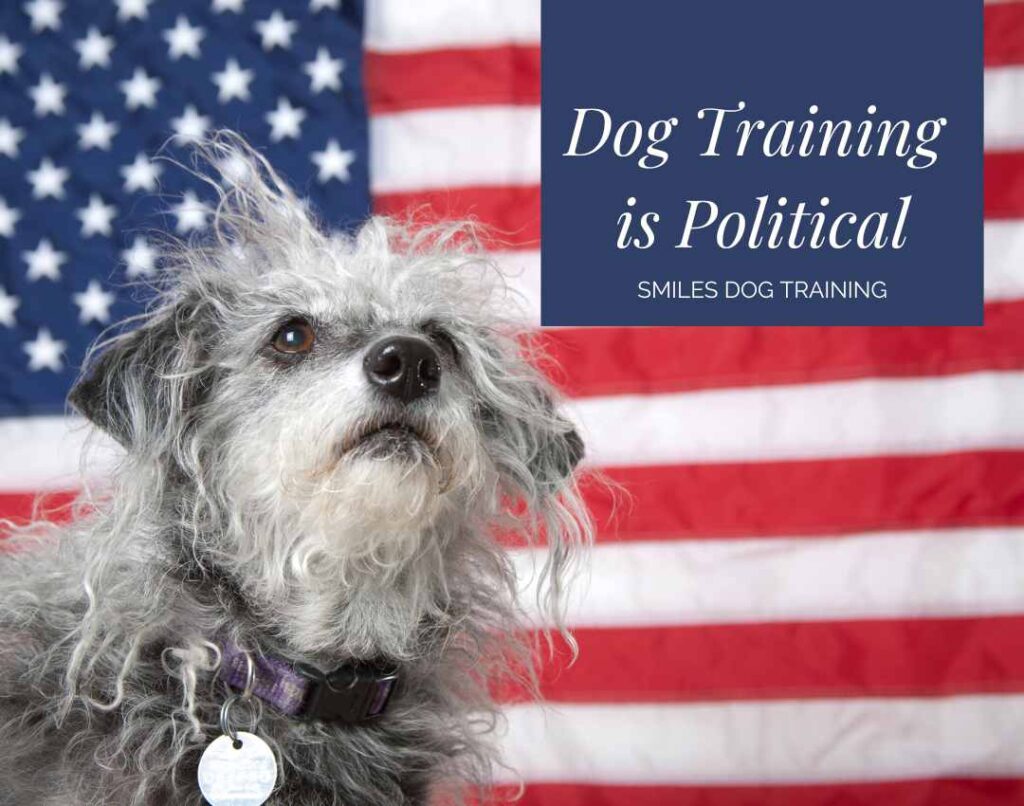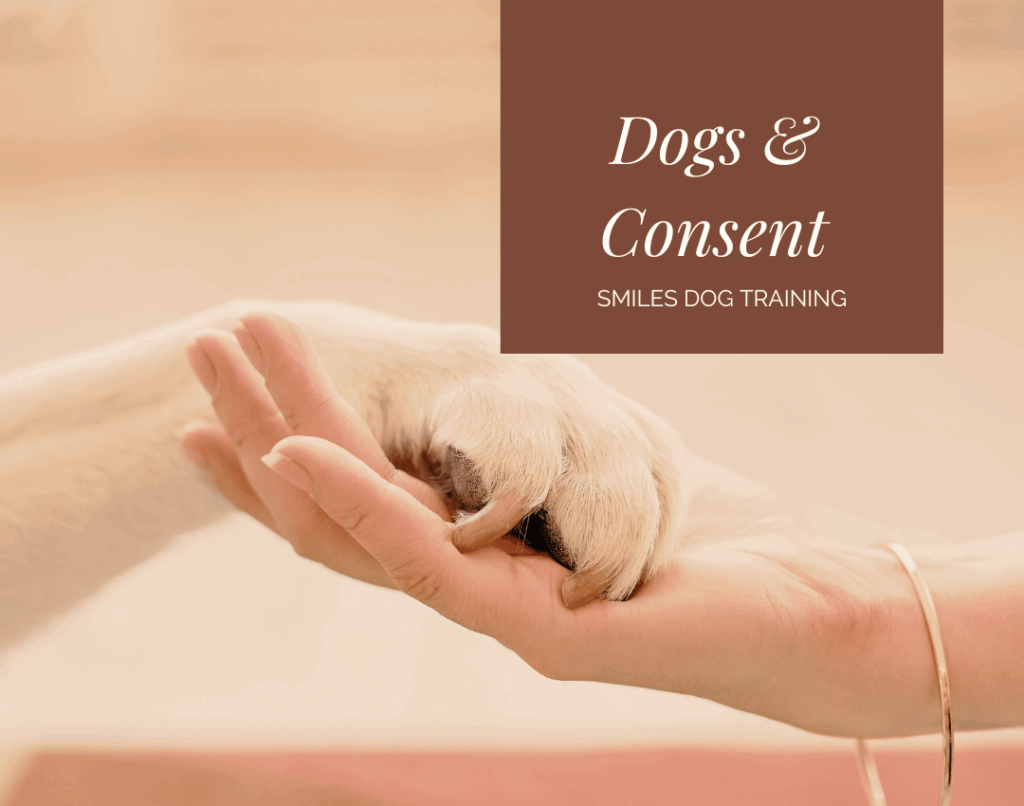My most recent email and instagram post focused on standing up to fascism and working together during these difficult political times. I received plenty of emails from past clients and followers full of appreciation that I was speaking up.
But I’ve also been getting messages telling me to “stick to dog training” and “leave politics out of it.”
I get it—talking about politics can be uncomfortable. But here’s the thing: dog training is political.
The way we treat animals reflects the way we treat people. Every choice we make—how we interact with our dogs, our communities, and each other—is shaped by larger systems and values.
And beyond that? I am a person affected by politics. My business is affected by politics. And if you’re reading this, chances are, your life is too.
Politics Shape Everything—Including Dog Training
People often think of politics as something separate from everyday life—something that only happens in government buildings or during elections.
But politics shape our world in ways big and small. They determine who has access to education, who can afford healthcare, who is protected from discrimination, and who feels safe simply existing in public spaces.
And yes, politics influence dogs and their people, too.
- Housing policies decide whether people can keep their pets.
- Animal welfare laws determine how dogs are treated in shelters.
- Systemic inequality affects who can afford quality training, who gets support when they need it, and who feels welcome in training spaces without fear of discrimination.
For example, a single parent working multiple jobs might not have the time or resources for training. A Black pet parent might feel unwelcome in predominantly white training spaces. A disabled person might struggle to find a trainer who understands their unique needs.
Ignoring these realities doesn’t erase them. It only makes it easier to overlook the real people—and dogs—who are struggling because of them.
Saying Dog Training Isn’t Political Has Real Consequences
When people insist that dog training is not political, they dismiss the larger forces shaping the industry—and that has real consequences.
If we treat dog training as apolitical, we ignore the fact that the industry remains unregulated—allowing anyone, regardless of experience or ethics, to call themselves a trainer.
We undervalue learning theory, behavioral science, and decades of research proving that punishment-based methods cause fear, anxiety, and long-term harm.
And most dangerously, we fail to recognize punishment-based training for what it truly is—part of a larger cycle of abuse.
Without accountability, the use of shock collars, prong collars, leash corrections, and other coercive methods is normalized. Dogs learn to comply out of fear, not trust. And because force-based training suppresses behavior instead of addressing the root cause, many dogs end up labeled as “dangerous” and ultimately abandoned, rehomed, or euthanized.
Dog training doesn’t exist in a vacuum—it reflects our values, our beliefs, and the way we engage with the world. Ignoring its political impact doesn’t make it go away—it just allows harmful practices to continue unchecked.
Dog Training Is a Reflection of Our Values
The way we train dogs is deeply connected to the way we move through the world.
Do we lead with fear or kindness?
Do we use coercion or consent?
Do we focus on punishment or reinforcement?
If you’ve been following my work, you know I trust in positive reinforcement—not just as a training method, but as a way of being.
I don’t think it’s ethical making a dog to obey through fear and intimidation.
And I know forcing people into silence when they speak up against harm and injustice doesn’t make the harm and injustice go away.
Some say kindness and politics don’t mix.
But history shows us otherwise—acts of kindness have driven major social change, from civil rights movements to animal welfare reforms.
Leading with kindness doesn’t mean staying silent in the face of oppression.
It means refusing to look away when others are suffering.
It means standing beside those who need support, even when it’s uncomfortable.
It means standing in the way of those who seek to harm others with their policies, ideas, and hands.
I Won’t Apologize for Standing Up for What’s Right
If you believe politics and dog training should never mix, I’m probably not the right trainer for you.
I will always stand against racism, sexism, homophobia, transphobia, ableism, and any other form of oppression—because my values don’t stop at the door when I start working with dogs.
I also know that many of you feel the same way.
You’re here because you want to build a trusting, respectful relationship with your dog.
And chances are, you want the same kind of world for people, too.
So, to those who tell me to “stick to training dogs”?
I won’t.
Because training dogs is about so much more than just dogs—it’s about the world we choose to create.
If You’re Still Here, Thank You
If this message resonates with you, I’m grateful you’re here.
If it challenges you, I encourage you to explore that discomfort with curiosity—because growth starts with asking questions, not having all the answers.
And if you strongly disagree and prefer a trainer who ignores real-world issues? I won’t stop you from leaving.
For everyone else? Let’s keep learning, growing, and leading with kindness—together.
Take care of yourselves.
Take care of each other.
And keep leading with kindness.


